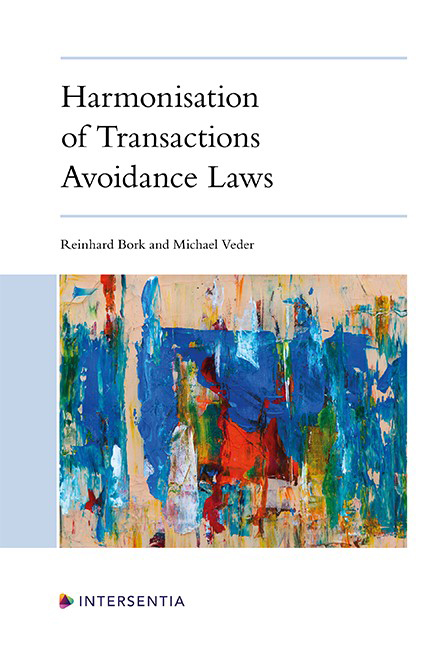Czech Republic
Published online by Cambridge University Press: 26 May 2022
Summary
PART 1. DETAILS OF YOUR NATIONAL TRANSACTIONS AVOIDANCE LAW
I. SYSTEM
Question 1. Is your transactions avoidance law (for terminology cf. Introduction at C.) part of insolvency law or is it in parts or as a whole incorporated in other fields of law (e.g. general civil law, commercial law, company law)?
Insolvency law, the Insolvency Act 182/2006 Coll., as amended (the “IA”). There are separate provisions on avoidance in the Civil Code 89/2012 Coll., as amended; however, these do not apply inside insolvency proceedings.
Question 2. Are the rules on transactions avoidance law in your jurisdiction the same for entrepreneurs/legal entities and consumers/natural persons? If not, please explain the differences and take it into account when completing this questionnaire.
Yes.
Question 3. Are the rules on transactions avoidance law in your jurisdiction the same for liquidation and restructuring proceedings (if any)? If not, please explain the differences and take it into account when completing this questionnaire.
Yes.
Question 4. Are the rules on transactions avoidance law in your jurisdiction the same for debtor-in-possession proceedings (if any)? If not, please explain the differences and take it into account when completing this questionnaire.
Yes.
Question 5. Does your transactions avoidance law distinguish various avoidance grounds (e.g. preferences, transactions at an undervalue, etc.) or is there only one general clause for all kinds of transactions?
Yes, various grounds.
Question 6. If the answer to Question 5 is “yes”: does your law contain special rules for the following kinds of transactions (for details, see below at Question 12 et seq.):
a) preferences?
Yes.
b) transactions at an undervalue?
Yes.
c) intentionally fraudulent transactions?
Yes.
d) shareholder loans?
No, unless they qualify as one of the categories above.
Question 7. Are there any other special kinds of transactions which are addressed in your transactions avoidance law and which you would like to mention here?
No.
Question 8. What are the policies (considerations) behind the rules mentioned in the answers to Questions 6 and 7?
Deterring/reversing opt-out behaviour prior to the opening of collective insolvency proceedings while not disrupting legitimate transactions.
- Type
- Chapter
- Information
- Harmonisation of Transactions Avoidance Laws , pp. 679 - 702Publisher: IntersentiaPrint publication year: 2022

